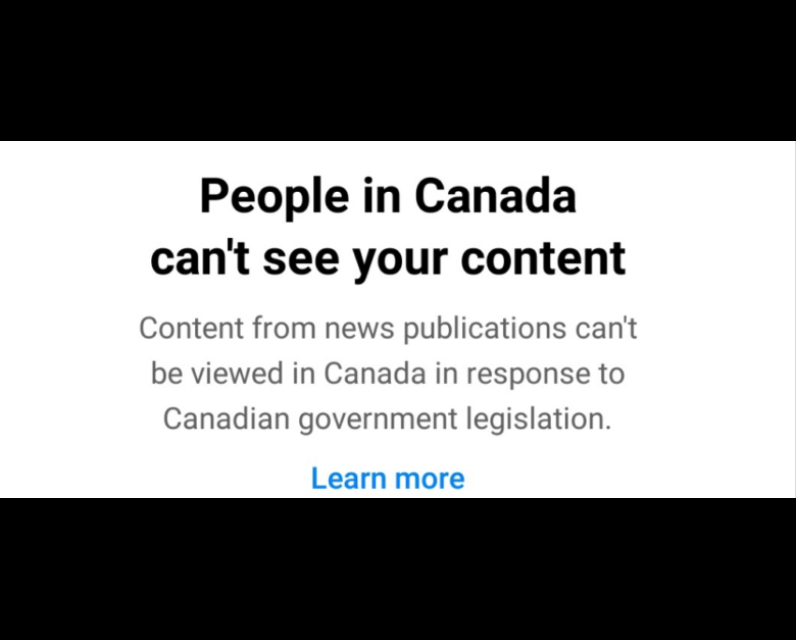Unpublished Opinions
Dr. Michael Geist is a law professor at the University of Ottawa where he holds the Canada Research Chair in Internet and E-commerce Law. He has obtained a Bachelor of Laws (LL.B.) degree from Osgoode Hall Law School in Toronto, Master of Laws (LL.M.) degrees from Cambridge University in the UK and Columbia Law School in New York, and a Doctorate in Law (J.S.D.) from Columbia Law School. Dr. Geist is a syndicated columnist on technology law issues with his regular column appearing in the Toronto Star, the Hill Times, and the Tyee. Dr. Geist is the editor of several copyright books including The Copyright Pentalogy: How the Supreme Court of Canada Shook the Foundations of Canadian Copyright Law (2013, University of Ottawa Press), From “Radical Extremism” to “Balanced Copyright”: Canadian Copyright and the Digital Agenda (2010, Irwin Law) and In the Public Interest: The Future of Canadian Copyright Law (2005, Irwin Law), the editor of several monthly technology law publications, and the author of a popular blog on Internet and intellectual property law issues.
Dr. Geist serves on many boards, including the CANARIE Board of Directors, the Canadian Legal Information Institute Board of Directors, the Canadian Internet Registration Authority, and the Electronic Frontier Foundation Advisory Board. He has received numerous awards for his work including the Kroeger Award for Policy Leadership and the Public Knowledge IP3 Award in 2010, the Les Fowlie Award for Intellectual Freedom from the Ontario Library Association in 2009, the Electronic Frontier Foundation’s Pioneer Award in 2008, Canarie’s IWAY Public Leadership Award for his contribution to the development of the Internet in Canada and he was named one of Canada’s Top 40 Under 40 in 2003. In 2010, Managing Intellectual Property named him on the 50 most influential people on intellectual property in the world and Canadian Lawyer named him one of the 25 most influential lawyers in Canada in 2011, 2012 and 2013.
Click here to view Dr. Geist’s full CV.
Michael Geist: Why Is Meta Blocking All News Links? Because Bill C-18 Covers All News Outlets

Blocking of news links on Facebook and Instagram in Canada has becomes increasingly widespread in recent days, leading to a growing number of public comments from media outlets and reporters expressing surprise or shock about the scope of the link blocking. Indeed, outlets with blocked links include university student newspapers, radio stations, and foreign news outlets. While there may have been some errors (Facebook has a page to seek review of any blocked link decision), the inclusion of a very wide range of Canadian and foreign news outlets is no accident. Rather, it reflects the government’s Bill C-18 approach, which effectively covers all news outlets worldwide whose links are accessed in Canada. The Canadian government could have adopted a more targeted approach – for example, limiting the scope to news links from those news outlets eligible to negotiate agreements with Internet platforms under the law – but it instead went for the broadest possible approach that includes foreign news outlets with little or no connection to Canada.
Understanding why Bill C-18 covers news links from outlets who are not “eligible news businesses” under the law requires unpacking several provisions. First, start with the definition of a “digital news intermediary”, which states:
"digital news intermediary means an online communications platform, including a search engine or social media service, that is subject to the legislative authority of Parliament and that makes news content produced by news outlets available to persons in Canada. It does not include an online communications platform that is a messaging service the primary purpose of which is to allow persons to communicate with each other privately."
This definition is critical since the only companies that are subject to Bill C-18’s requirement to negotiate agreements with news outlets are (1) those that qualify as DNIs under this definition and (2) meet the requirements found in Section 6 on a significant bargaining power imbalance. The absence of significant bargaining power imbalance is why companies such as Twitter, Microsoft or Apple are not subject to the law. That leaves Google and Meta, provided that they qualify as DNIs. The key phrase in the qualification requirement is that the companies “make news content produced by news outlets available to persons in Canada.” If the companies do not make news content produced by news outlets available to persons in Canada they are not DNIs and are not subject to the law.
So what does “make news content produced by news outlets available to persons in Canada” mean? First, making news available includes:
(a) the news content, or any portion of it, is reproduced; or
(b) access to the news content, or any portion of it, is facilitated by any means, including an index, aggregation or ranking of news content.
Government officials have confirmed that facilitation by any means includes linking to the news content.
Since linking is sufficient for the purposes of making news content available, the remaining two relevant definitions involve “news content” and “news outlet.” News content is defined as:
content — in any format, including an audio or audiovisual format — that reports on, investigates or explains current issues or events of public interest and includes such content that an Indigenous news outlet makes available by means of Indigenous storytelling.
This broad definition covers all news content in any format, which helps explain why everything from newspapers to podcasts are covered by the law.
Second, a news outlet:
means an undertaking or any distinct part of an undertaking whose primary purpose is to produce news content and includes an Indigenous news outlet or an official language minority community news outlet.
This notably does not limit the geographical scope of news outlets, which means the news content that a DNI makes available through linking can come from any news outlet anywhere the world. The law includes a separate definition for “eligible news business” (defined at Section 27), which are news outlets that qualify for the law’s negotiation and arbitration system. The government could have provided that DNI’s “make news content produced by eligible news businesses available to persons in Canada.” If it had done so, only links to news from eligible news businesses would result in an Internet platform being treated as a DNI. The news link blocking would have therefore been limited to eligible news business content and left alone most foreign news links and some Canadian news outlets.
Yet the government’s choice was to try to bring Meta and Google into the scope of the law by virtue of any news links to any news outlet anywhere in the world, even if those outlets have nothing to do with Canada or with the Bill C-18 system. Given Meta’s stated goal of complying with Bill C-18 by removing links to news content that would render it a DNI, the government’s legislative choice of covering all news links from all news outlets therefore effectively requires it to block all of those news links.



Comments
Be the first to comment